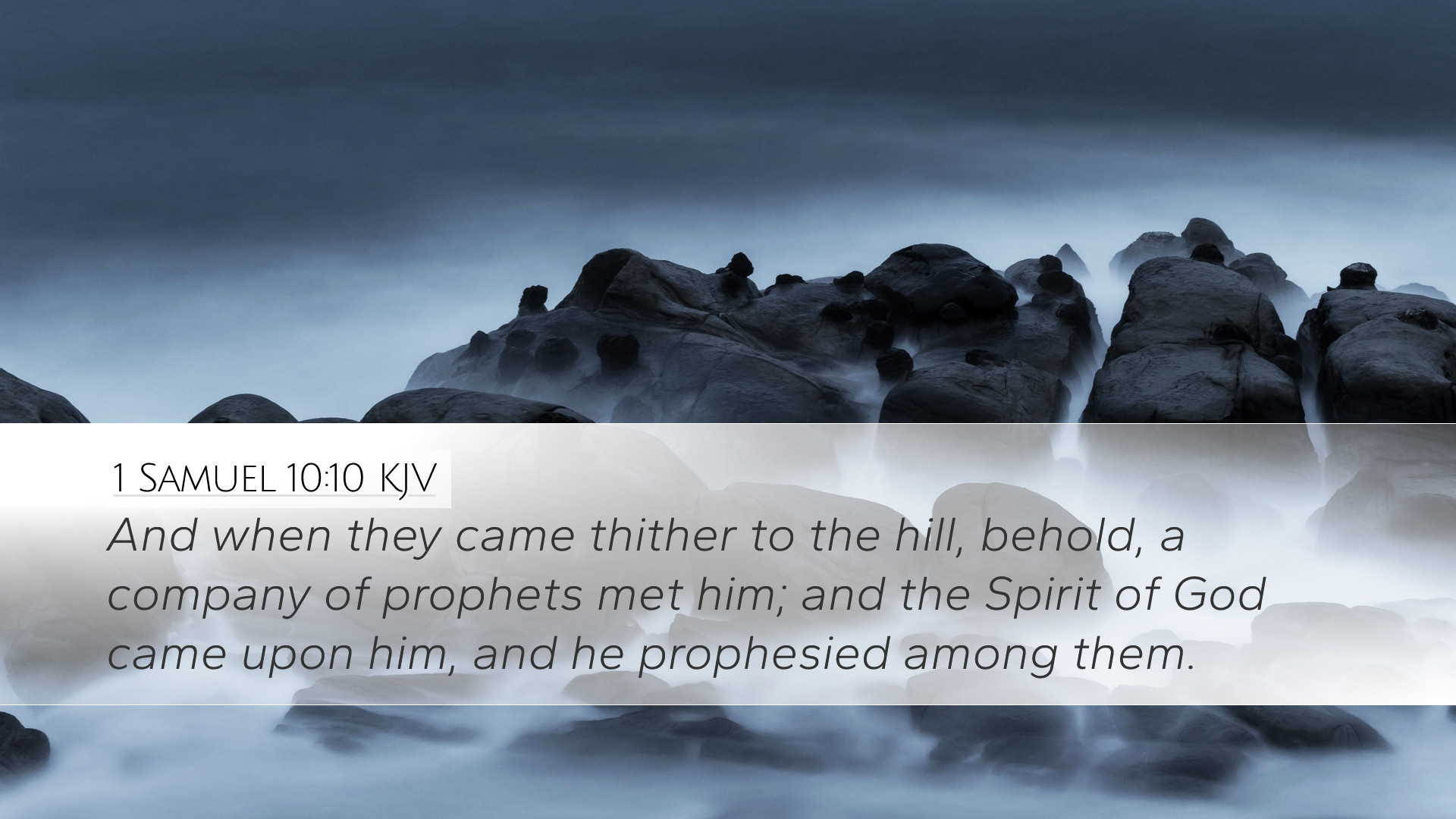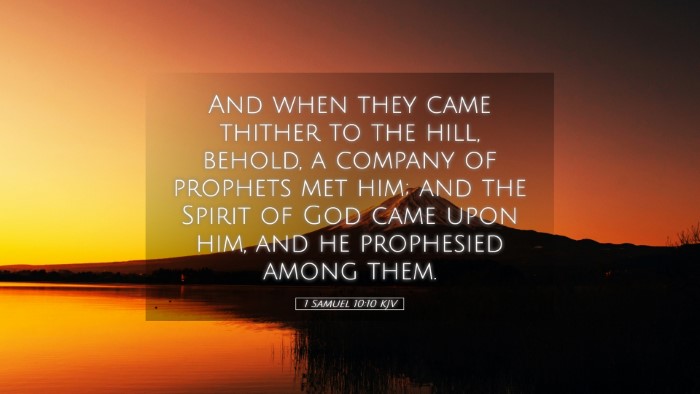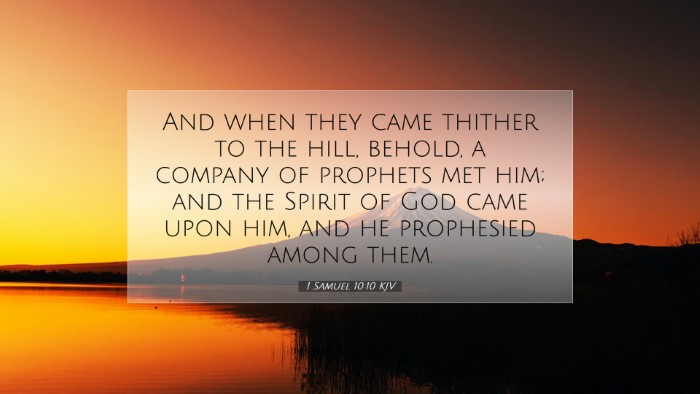Commentary on 1 Samuel 10:10
Verse Reference: 1 Samuel 10:10
In this verse, we witness a pivotal moment in Israel's history, where Saul, newly anointed by the prophet Samuel, embarks on a transformative journey marked by divine encounter and purpose.
Summary of the Context
This passage occurs within the broader narrative of Israel's transition from theocracy under the judges to monarchy. The anointing of Saul signifies not only God's choice of a king for His people but also introduces the complexities that come with human leadership.
Insights from Matthew Henry
Matthew Henry emphasizes that this moment reflects God's sovereign choice. He articulates that Saul's initial experience with the Spirit of the Lord is both a blessing and a call to responsibility. Henry notes:
- Divine Empowerment: Henry underscores that the Spirit of God came upon Saul, enabling him to prophesy. This phenomenon is significant as it demonstrates God's willingness to empower leaders for His purposes.
- Transformed Identity: The experience serves as a crucial initiation into Saul’s identity as God’s anointed leader, illustrating that divine calling often requires a transformation of character.
Insights from Albert Barnes
Albert Barnes provides a detailed exploration of the prophetic transformation Saul undergoes. He notes:
- Sign of God's Favor: The event signifies God's favor upon Saul and serves as a sign to the people of Israel of God establishing His leader.
- Divine Prophecy: Barnes stresses the importance of prophecy in this context, suggesting it reflects the empowerment of Saul for future leadership challenges. His ability to prophesy marks him as a divinely chosen leader.
Insights from Adam Clarke
Adam Clarke offers a rich theological perspective on this passage, outlining the following points:
- Cultural Context: Clarke explains that prophesying, especially in the context of Israel, often indicated a connection with the divine, establishing Saul’s legitimacy.
- The Role of the Holy Spirit: He discusses the role of the Holy Spirit in equipping Saul, which underscores a biblical precedent for the Spirit’s activity in empowering leaders.
Theological Implications
The implications of Saul's anointing and the outpouring of the Spirit are far-reaching:
- God's Sovereignty: This passage reaffirms the belief that God is sovereign over the affairs of humanity and raises leaders according to His divine will.
- Moral Responsibility: With divine empowerment comes moral and ethical responsibility. Leaders must align their actions with God's will, a theme that resonates throughout the Scriptures.
- Preparation for Challenges: The empowerment of Saul serves as a foreshadowing of the challenges he will face. Every leader must be prepared to face adversity in accordance with God's calling.
Practical Applications for Pastors and Theologians
In light of this commentary, various practical applications emerge:
- Dependence on the Holy Spirit: Leaders are reminded to seek the Holy Spirit’s guidance and empowerment for their ministries.
- Embrace of Transformation: Like Saul, leaders should expect and embrace transformative experiences as they answer God’s call.
- Understanding of Leadership: This verse offers a profound understanding of the characteristics of godly leadership, emphasizing both divine selection and human responsibility.
Conclusion
1 Samuel 10:10 serves as a crucial text in understanding the nature of leadership in the life of Israel and offers timeless principles applicable to modern leaders. The anointing of Saul is not merely a historical event but a profound teaching on the sovereignty of God, the transformative work of the Holy Spirit, and the responsibilities that come with divinely appointed leadership.


